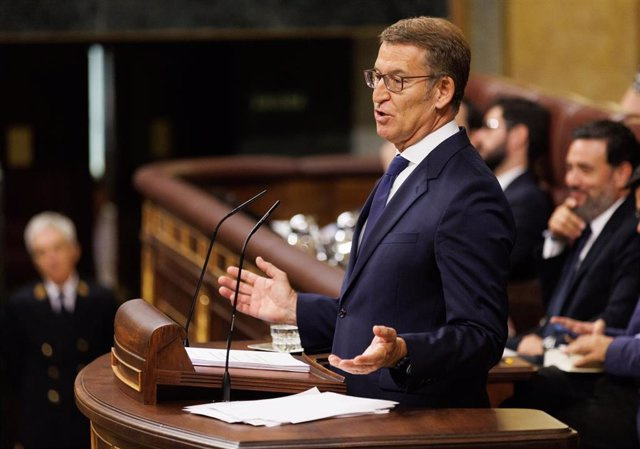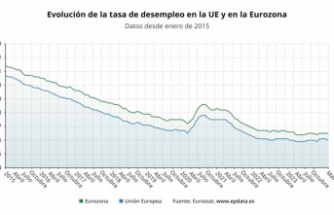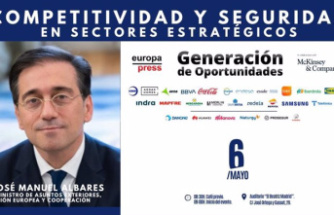He wants a platform where all job vacancies are published and advocates "shielding the adequacy of pensions"
The leader of the PP and candidate for the Presidency of the Government of Spain, Alberto Núñez Feijóo, proposed this Tuesday in the investiture debate held in Congress the approval during the first year of the legislature and within the social dialogue of a calendar to raise, "with objective criteria", the minimum interprofessional salary (SMI) to 60% of the average salary.
The 'popular' leader has also reproached the Socialist Government for the fact that the increase in the SMI "is below" what prices have increased. "With us, the increase in the minimum wage exceeds the increase in prices," he assured.
Likewise, Feijóo has opted to reform the procedure for granting the Minimum Living Income (IMV), "which today leaves out two out of every three potential beneficiaries", and streamline it with the help of the autonomous communities.
During his speech, Feijóo claimed the need to address the "limitations" in the autonomy of working hours because they "complicate" work-life balance, make it difficult to dedicate time to children and "affect productivity and mental health."
In this sense, it has proposed convening social and economic agents so that, within a year, a general framework can be available to be developed later in collective bargaining that addresses "two priority formulas" to address time management. of work: the "flexible" working week and the establishment of a bank of hours so that workers can use them, for example, during non-school periods.
For Feijóo, this challenge cannot be faced "in any way" and even less "by decree." "The economic fabric is sufficiently complex for this issue to be resolved with surgical precision in each company," he defended.
"80% of employees in Spain claim to have no decision-making power over the organization of their work schedules. This figure contrasts with that of other countries: in Sweden and Finland, the percentage is just over 30%; in Denmark and Germany, close to 50%; and in Belgium and France, slightly higher than 60%," he explained.
The leader of the PP and candidate for the Presidency of the Government has also proposed facilities to promote self-employment, freeing small business owners from paying taxes during the first two years of activity.
"It would, without a doubt, be a strategic commitment to entrepreneurship to reactivate the economy with more intensity in the face of current uncertainty," stressed Feijóo, who added that this has to be "the legislature of SMEs and the self-employed."
A NATIONAL PLATFORM WITH ALL JOB VACANCIES
In his speech, Feijóo warned that structural unemployment is the "most important economic fragility" that Spain has, with an unemployment rate that doubles that of the rest of Europe and a youth unemployment rate that is the highest in Europe, he denounced. .
"Despite officially registering more than 2.7 million unemployed people in Spain, the economy suffers from the lack of almost a million workers (...) Despite allocating 6,000 million to active employment policies, the placement ratio is one out of every hundred, according to AIReF", argued Feijóo.
To try to reverse this situation, the 'popular' leader has proposed making public the number of inactive permanent-discontinuous employees and designing a 'National Training Strategy', with the autonomous communities, within the framework of a specific Conference of Presidents, and with the collaboration of training centers.
It has also asked for the collaboration of companies to concentrate all job vacancies on a "mandatory national platform" with the aim of "appropriately" matching supply and demand.
"SHIELDING" THE SUFFICIENCY OF PENSIONS
Regarding pensions, Feijóo has stressed that "the PP never froze pensions as the PSOE did" and that it does not support reducing them "as provided for by the current law in force."
The PP leader has asked to leave pensions "out of the political fray" and return them to the Toledo Pact, guaranteeing "always and under any circumstances" their revaluation. "Neither freeze nor reduce. And protect its sufficiency today and in the future," he emphasized.













